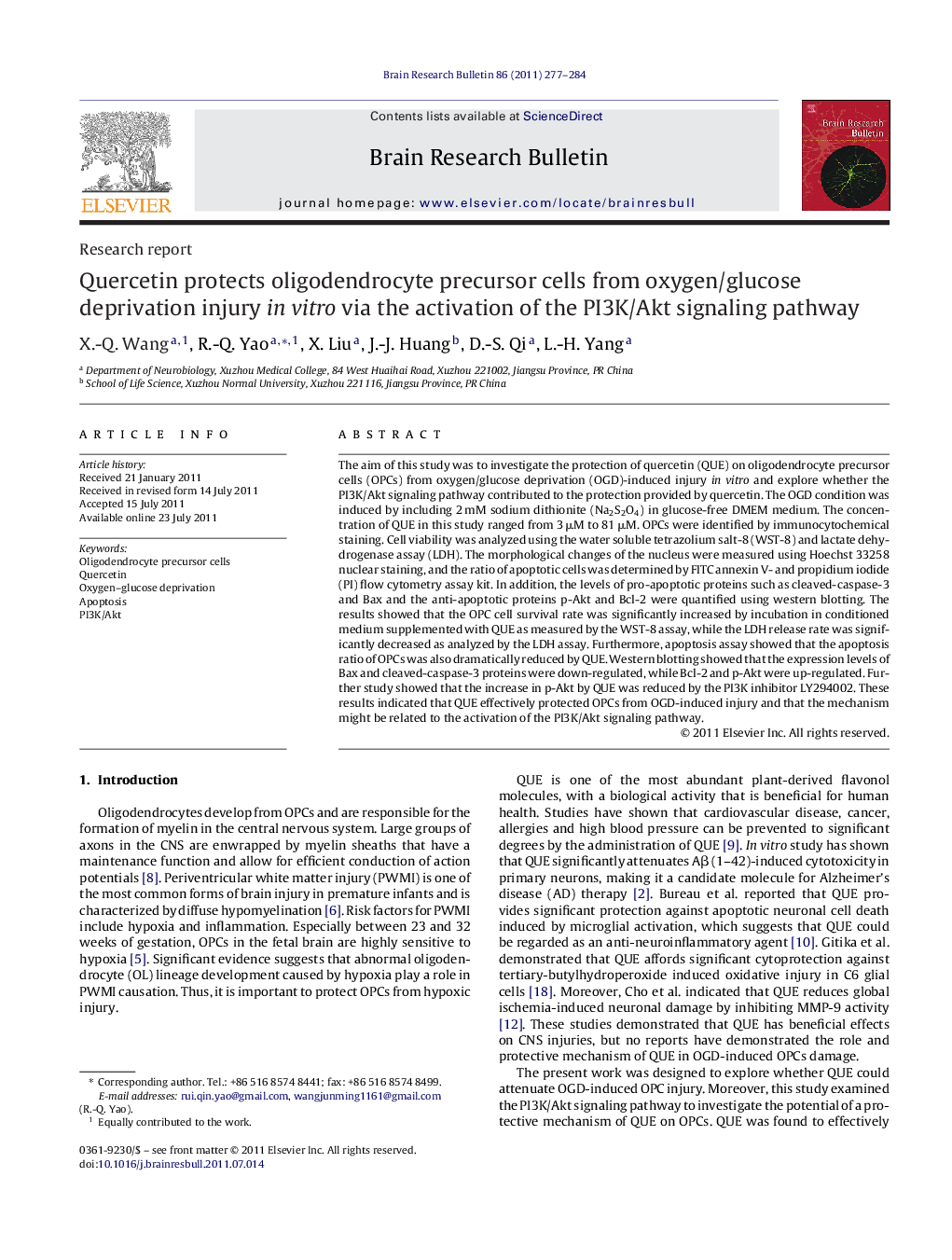| کد مقاله | کد نشریه | سال انتشار | مقاله انگلیسی | نسخه تمام متن |
|---|---|---|---|---|
| 6261989 | 1613273 | 2011 | 8 صفحه PDF | دانلود رایگان |

The aim of this study was to investigate the protection of quercetin (QUE) on oligodendrocyte precursor cells (OPCs) from oxygen/glucose deprivation (OGD)-induced injury in vitro and explore whether the PI3K/Akt signaling pathway contributed to the protection provided by quercetin. The OGD condition was induced by including 2 mM sodium dithionite (Na2S2O4) in glucose-free DMEM medium. The concentration of QUE in this study ranged from 3 μM to 81 μM. OPCs were identified by immunocytochemical staining. Cell viability was analyzed using the water soluble tetrazolium salt-8 (WST-8) and lactate dehydrogenase assay (LDH). The morphological changes of the nucleus were measured using Hoechst 33258 nuclear staining, and the ratio of apoptotic cells was determined by FITC annexin V- and propidium iodide (PI) flow cytometry assay kit. In addition, the levels of pro-apoptotic proteins such as cleaved-caspase-3 and Bax and the anti-apoptotic proteins p-Akt and Bcl-2 were quantified using western blotting. The results showed that the OPC cell survival rate was significantly increased by incubation in conditioned medium supplemented with QUE as measured by the WST-8 assay, while the LDH release rate was significantly decreased as analyzed by the LDH assay. Furthermore, apoptosis assay showed that the apoptosis ratio of OPCs was also dramatically reduced by QUE. Western blotting showed that the expression levels of Bax and cleaved-caspase-3 proteins were down-regulated, while Bcl-2 and p-Akt were up-regulated. Further study showed that the increase in p-Akt by QUE was reduced by the PI3K inhibitor LY294002. These results indicated that QUE effectively protected OPCs from OGD-induced injury and that the mechanism might be related to the activation of the PI3K/Akt signaling pathway.
⺠QUE could increase the survival rate of OPCs in OGD condition. ⺠The OGD-induced OPCs apoptotic cell death could be significantly inhibited by QUE. ⺠QUE could regulate the activity of Bcl-2, Bax and cleaved-caspase-3 in this study. ⺠The PI3K/Akt pathway was involved in the protective mechanism of QUE on OPCs. ⺠We supplied a potential therapy strategy for the myelin-related diseases.
Journal: Brain Research Bulletin - Volume 86, Issues 3â4, 10 October 2011, Pages 277-284